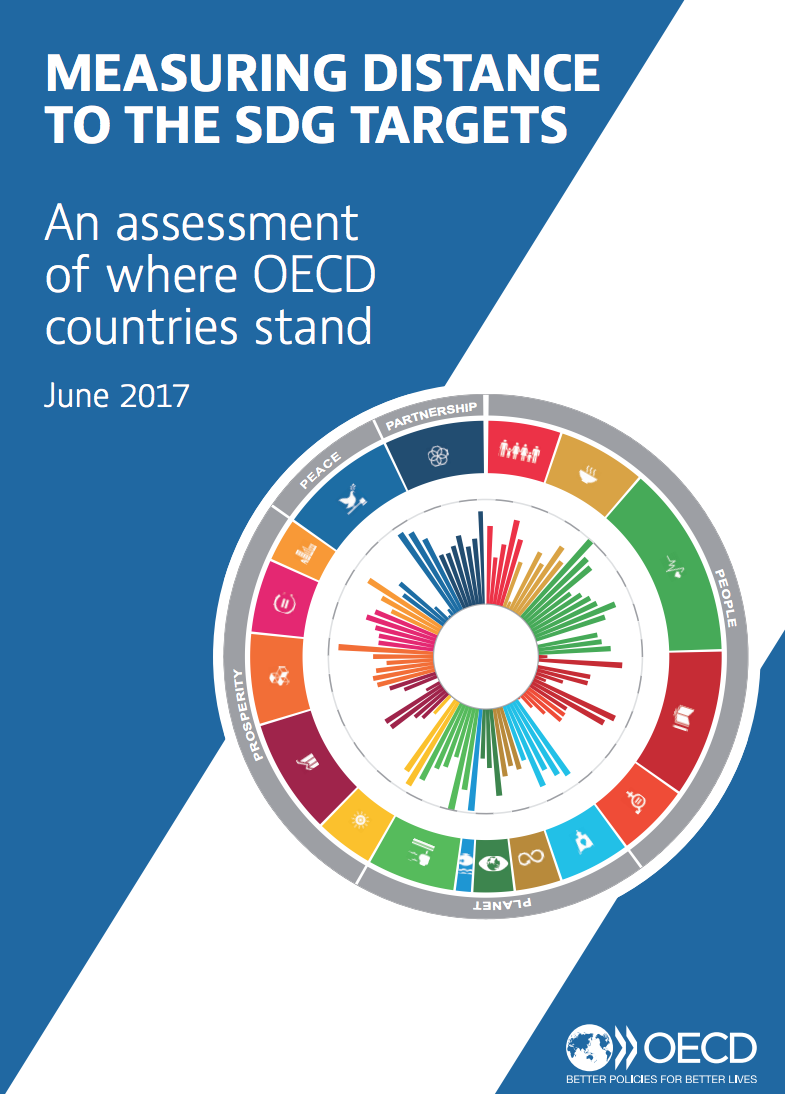Resource information
The 2030 Agenda for Sustainable Development, adopted by world leaders at the United Nations on 25 September 2015, sets out an ambitious plan of action for people, planet and prosperity, with the overarching objective of leaving no one behind. At its core are 17 Sustainable Development Goals (SDGs) comprising 169 targets.
The OECD Study “Measuring Distance to the SDG Targets" updated in June 2017, has been undertaken to assist member countries with their national implementation of the 2030 Agenda for Sustainable Development.
Drawing on the IAEG Global List of indicators, its methodology evaluates the distance countries need to travel to meet each target. Thus, by providing a high-level overview of strengths and weaknesses in performance across the SDGs and the 5Ps, this tool can help countries to navigate the SDGs’ complexity and identify priorities within the broad 2030 Agenda.
A pilot version of the study was presented by the OECD in the margins of the UN High-Level Political Forum on the SDGs in New York on July 14th 2016. Feedback and comments received from experts and country representatives throughout the pilot phase led to several refinements in the Study methodology, including an increase in the number of indicators and targets covered. These changes, as well as increased country participation in the study, are reflected in the June 2017 publication.
Participation in the Study is voluntary, and countries can join at any time. For more information, please contact: wellbeing@oecd.org


